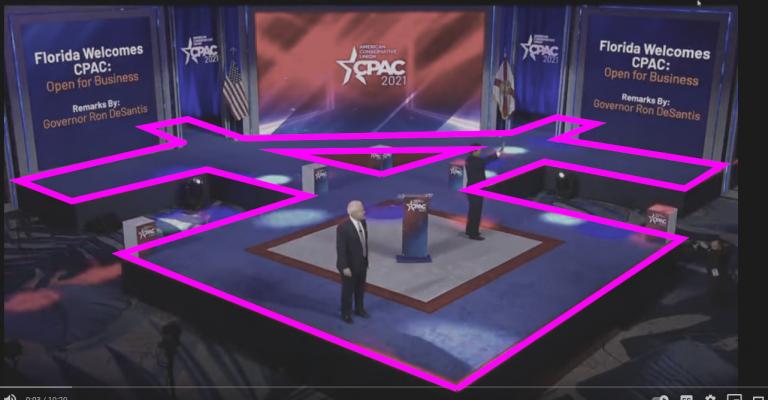My state’s congregations have dropped our twice-yearly cluster meeting to once a year in the hopes of increasing participation.
A typical Cluster Meeting
- Friday evening
- Dinner
- Opening Talk
- Activity
- Closing
- Saturday morning
- Breakfast
- Opening
- Business discussions
- Session on Church Operations
- Saturday afternoon
- Lunch
- Session on Church Operations continues
- Business Discussions and Announcements
- Closing
- Sunday morning
- Do whatever the local congregation does
There’s nothing wrong with a meeting like that. It’s functional and useful. It’s also not going to appeal to people whose primary interest in church isn’t running the church.
Here’s a proposed variant event schedule. It was inspired by my personal observations and by this Call for a UU General Conference. It’s short and well worth your time. One recommendation from that report is “that the Unitarian Universalist Association schedule general conferences on a regular basis, perhaps in biennial rotation with General Assembly business sessions.” I think our twice-yearly schedule would be supportable if one of the two meetings was primarily a general conference and the other primarily a business meeting.
An ideal Cluster General Conference
- Friday evening
- Dinner
- Announcements
- Opening worship
- Covenant
- Build at first meeting
- Review and maintain thereafter
- Closing
- Activity
- Saturday morning
- Breakfast
- Opening worship
- Discernment (and Professional Development)
- Saturday afternoon
- Lunch
- Discernment (and Professional Development)
- Announcements
- Closing worship
- Dinner
- Saturday evening
- Sunday morning
- Breakfast
- Do whatever the local congregation does
- Sunday afternoon
- Lunch
- Work sessions for specific goals
That’s the ideal schedule. There’s one type of big variation that’s easy and likely. The Sunday afternoon work sessions could be done in parallel with discernment and professional development on Saturday. There’s overlap between the work sessions and the professional development–I’m thinking of that almost exclusively for church administrators, since ministers, religious educators, and music directors already have significant opportunities for professional development–so that’s doable. Those sessions are specialized and specific and task-oriented. Most folks neither want nor need to attend them. Professional development-type things could move to Sunday as well.
There’s another variation that’s a little more difficult and might be best stirred into a cluster business meeting: A local service project. This could be outwardly-directed toward the community, or inwardly-directed toward the hosting congregation. It’s hard to say how to make it work without having an outline of the service project in mind.
Design points
- If necessary, hire a musician to make sure there’s lots of singing.
- One broad topic.
- Facilitated, not directed, conversations. People can tell when they’re being led.
- Parallel work tracks to
- Take fullest advantage of the meeting preparations,
- Provide something useful for church administrators, who are not necessarily Unitarian Universalists, and
- Give people uninterested in or who already have “Answers to the question: “What is the purpose of Unitarian Universalism in these times?”” something to do.
- Use the full Friday evening for covenant building, especially the first time around, to set both a pattern and an example.
- Many short worship services of varied styles. Give people a taste of what they don’t often see or experience.
- Make the trip worth it. If people are willing to stay the whole weekend, or must arrive late or leave early, give them something for their time and effort.
- Fund it via congregational support rather than individual admissions. Don’t make people ask for support.
- Use home hospitality and sleeping in the church as the primary lodging option.
- Over-prepare food with the expectation of giving leftovers away to the homeless.
- Did I mention getting a musician to make sure there’s lots of singing? Maybe two of them, just to make sure.
Why?
Most of it is in the Call for a UU General Conference, which is short and which you should read. Here for emphasis (and not to save you the effort of reading that short article) is the most relevant part:
The ecclesiastical body is an intentional community of delegates who come together for the mutual strengthening of the congregations, the creation of relationships of mutual aid and accountability, and theological discernment. The ecclesiastical body is responsible for discerning the religious movement’s ultimate and broad purpose. Ultimately, the ecclesiastical body asks and discerns answers to the question: “what is the purpose of Unitarian Universalism in these times?”…Every effort should be made to make these conferences affordable, so that attendees are not limited to older people of means. Further, so that these conferences can build for the future of our movement, we should actively engage youth, young adults, UUs of color, and other historically under-represented groups…
Comment: This proposal is built in part to address our inability to “engage youth [and] young adults”, both those in our congregations and the many more who’ve left them.
We also strong urge the systemic reexamination of the roles and responsibilities enshrined in our current bylaws as we know this organization to have been derived from explicitly racist, sexist, and classist principles. The standard non-profit organization structure, first evolved in the early 19th century, was itself a copy of the business corporation, and specifically, a small New England business corporation that saw virtue in consolidating power to a limited number of patrons. The 1825 establishment of the AUA was very much a part of this milieu (see The Transformation of Charity in Postrevolutionary New England by Conrad Edick Wright), and while there have been many changes since that time some core patterns of distributing power remain the same. Indeed, in many ways the UUA maintains much of the structure given it by Samuel Atkins Eliot (American Unitarian Association President, 1900-1927; some even call the UUA the “House that Sam built”). Eliot did work to deliberately match the AUA organization with that of business models, especially in terms of disempowering the Board, along the lines of successful “banks, insurance companies, and mills.” Of course, in doing so, he was also bringing the AUA even more in line with how wealthy New England families were accustomed to running New England charities. Eliot brought this same lens to his work as a Bureau of Indian Affairs Commissioner, where his stump speech was “From the Scalping Knife to the Can Opener,” a statement about how only assimilation to white culture would save Native Americans from their own “barbarism.”
Comment: I have seen the equivalent of violence done to people by treating a church like a business. That’s why I put this whole paragraph in. I hope it will shock you. There is corruption in the current model all the way down to its base and all the way out into the often genocidal society our forebears helped build.
The Task Force was charged changing the culture of the UUA from one of a member services administration to one of mutual covenanting. After over a year and a half of deep discussions, we have realized that this culture of covenant was precisely what was created by the conferences and conventions of our past, as they were designed for the mutual strengthening of the congregations, the creation of relationships of mutual aid and accountability, and theological discernment (emphasis added)…The nature of business meetings, governed by Robert’s Rules of Order, is fundamentally adversarial rather than covenantal.
Here we reach the heart of the matter:
- Mutual strengthening of the congregations
- Creation of relationships of mutual aid and accountability
- Theological discernment
I would suggest those are in reverse order. To strengthen each other, we must first know each other; to know each other, we must first know ourselves. So we begin with discernment.
There should also be an end in mind. The Arkansas UU Cluster can have a purpose, just as the UUA does. Currently that purpose is poorly-defined. That figures, because we haven’t talked among ourselves about what we want and why. I would suggest there are many things the Cluster could take as a goal. We could involve ourselves more directly in the Justice ministry which spun off from the Cluster. We could work together to plant a congregation in a likely spot–Russellville, Fort Smith, Joplin, Arkadelphia, or Pine Bluff. Somewhere with a concentration of people and at least half an hour from the nearest UU congregation. We could buy a piece of land and build a camp.
But before we know what, we have to know why. So we begin with discernment.
What’s left out?
I intentionally left out families and child care. My kid is in high school, nearly old enough to join the church, and attends adult activities. My concerns aren’t those of younger parents. The way to proceed with them is to ask every one of them in our congregations what would make a gathering worthwhile for them and then do that thing. The best way to proceed would be for congregations to allocate money to do this and ask their youth and young adults to plan it, to make the decisions about it, and depend on the rest of us to help faithfully implement their ideas. I’m not sure we’re mature enough to do that yet, but we’d best get there. As Marcus Aurelius said via Jim Whitehead:
The time is near at hand for forgetting all; near too,
the time for all forgetting you.
What’s next?
You tell me.



